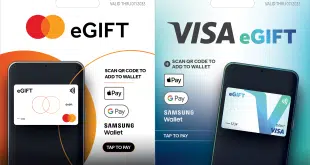Though it has attracted fervent enthusiasts, Bitcoin in the end offers less than meets the eye, says Eric Grover.
For an electronic-payment system, the lack of central accountability is a flaw, not a feature.
Eric Grover is principal at Intrepid Ventures, Minden, Nev. Reach him at eric.grover@intrepidventures.com.
Bitcoin mania is upon us.
Much-hyped Bitcoin is a decentralized digital currency and payment system. Bitcoins are produced—“mined”—by people using software to solve math problems. The system’s rules require progressively more processing power to create Bitcoins and cap total supply at 21 million. While its addresses and transactions are in a public ledger, they’re anonymous, which appeals to a variety of illicit use cases.
Bitcoin leads a pack of cryptocurrencies competing with government fiat money, private-sector payment and money-transfer networks, and financial assets and gold.
To understand Bitcoin’s attraction, we’ll review briefly what has happened to old-fashioned money. Then we’ll take a look at how Bitcoin stacks up against existing electronic alternatives.
‘Domestic Terrorism’
Money is an exchange medium, a unit of account, and a store of value. Governments have debased money for thousands of years. Roman emperors, for example, reduced coins’ gold, silver, and bronze content.
With paper fiat money, it’s easier. Zimbabwe’s central bank printed money by the truckload, and in the summer of 2008 inflation crested at a mindboggling 231,000,000%. Since 1970, gold has appreciated 3,468% against the dollar. From February 2008 to February 2014, the Fed increased its balance sheet 371% from $871 billion to $4.109 trillion, electronically creating $3.2 trillion.
For libertarians distrusting politicians’ and political central bankers’ control of money, an elegant technical solution like Bitcoin is irresistible. A hugely successful cryptocurrency would curb the state’s stealth taxing by printing money. Cryptocurrencies also offer enormous utility for illicit use: money laundering, drug trafficking, selling child pornography, and evading capital controls and taxes.
Consequently, if cryptocurrencies gain traction, governments will ruthlessly suppress them.
On Dec. 5, 2013, the People’s Bank of China prohibited banks from dealing in Bitcoin, and the dominos started falling. On Dec. 17, China’s largest Bitcoin exchange, BTC China, stopped accepting yuan deposits. In January, Taobao banned cryptocurrency use. Also in January, Russia surpassed China as second in Bitcoin downloads after the United States and lo, Russian regulators declared cryptocurrencies illegal.
In December, India’s central bank warned the public about Bitcoin’s risks. A few days later, India’s Enforcement Directorate raided Bitcoin exchange BuySellBit, accusing it of violating foreign-exchange regulations and facilitating money laundering.
Enjoying the world’s reserve currency and enormous seigniorage, the U.S. is every bit as, if not more, aggressive about suppressing competitors.
In 2007, gold-backed digital currency E-gold was charged with money laundering and facilitating child pornography. Founder Doug Jackson and three directors ultimately accepted a plea bargain. The Feds also attempted, unsuccessfully, to seize its gold.
Liberty Dollar, an issuer of gold and silver coins and certificates, was convicted in 2011 of making counterfeit coins resembling the U.S. Mint’s. U.S. prosecutor Anne Tompkins branded it “a unique form of domestic terrorism.”
Indeed, accusations of facilitating child pornography and terrorism are calculated to intimidate currency-competition champions. Bitcoin evangelist Charles Shrem cofounded BitInstant, which helped people buy Bitcoin, and was the Bitcoin Foundation’s vice chairman. The Feds arrested him on Jan. 26 at John F. Kennedy International Airport for facilitating drug trafficking.
The state, however, doesn’t have to ban cryptocurrencies to cripple them. In December, Norway declared Bitcoin an asset subject to its 28% capital-gains and 25% value-added taxes.
Network Reach
But Bitcoin has other problems. As a payment system, it competes with cash and established electronic-payment schemes like Visa Inc., MasterCard Inc., American Express Co., Discover Financial Services, and PayPal Inc. It also competes with money-transfer networks The Western Union Co., MoneyGram International Inc., and Fiserv Inc.’s Popmoney, as well as the automated clearing house.
These systems have centrally enforced rules and 24-by-7 support. They enjoy powerful network effects, are regulated, and have low marginal transaction costs. Bitcoin suffers by comparison. Here’s how:
Network reach matters. Globally, there are 9.6 billion general-purpose payment cards, and, including aggregated mobile-acceptance endpoints, close to 50 million merchants accepting MasterCard and Visa. Western Union has 515,000 agents worldwide. The ACH reaches every banked consumer.
As a retail-payments scheme, Bitcoin lacks critical mass on both sides of the network. A new payment system’s best chances lie in addressing underserved markets. Alipay, Mercadopago, and PayPal built initial critical mass in e-auction markets inadequately served by traditional card networks. M-Pesa became Kenya’s leading electronic payment system with 12 million active users and 79,000 agents by competing primarily with risky and inconvenient cash.
Enthusiasts gush that decentralized Bitcoin is fast, cheap, and has no payment-repudiation risk. Yet if Bitcoin robustly complies with state money-transmitter licensing and Federal know-your-customer regulations, its ecosystem becomes less attractive for the one sector where it has a competitive edge over established payments networks.
For an electronic-payment system, the lack of central accountability is a flaw, not a feature. The world’s largest Bitcoin exchange, Mt. Gox, and Slovenian exchange Bitstamp froze withdrawals due to technical issues that could allow the master ledger to be altered. While for moving assets from China to Australia it’s fine, Bitcoin’s taking 10 minutes to finalize a payment won’t cut it at the physical point of sale. And no chargeback rights is decidedly a negative for consumers.
Holistic system value is what matters. As startups Debitman and Revolution Money illustrated a few years ago, in retail payments being cheaper for merchants while delivering less consumer value isn’t a winning strategy.
Bitcoin’s volatile. From the beginning of 2013 to its Dec. 4 peak at $1,147.25, its value increased a whopping 8,558%, and as of Feb. 9 it was up 5,077%. Andreessen Horowitz’s Chris Dixon suggests it’s early days, that Bitcoin could become e-commerce’s primary payment system. Andreessen Horowitz is an investor in Bitcoin wallet and platform Coinbase.
Meanwhile, former Federal Reserve chairman Alan Greenspan, who was intimately involved in blowing the biggest housing and subprime mortgage bubble in history, says Bitcoin’s “a bubble” and is rightly skeptical it has intrinsic value.
While some speculators may make a bundle, Bitcoin isn’t going to upend the payments world.





